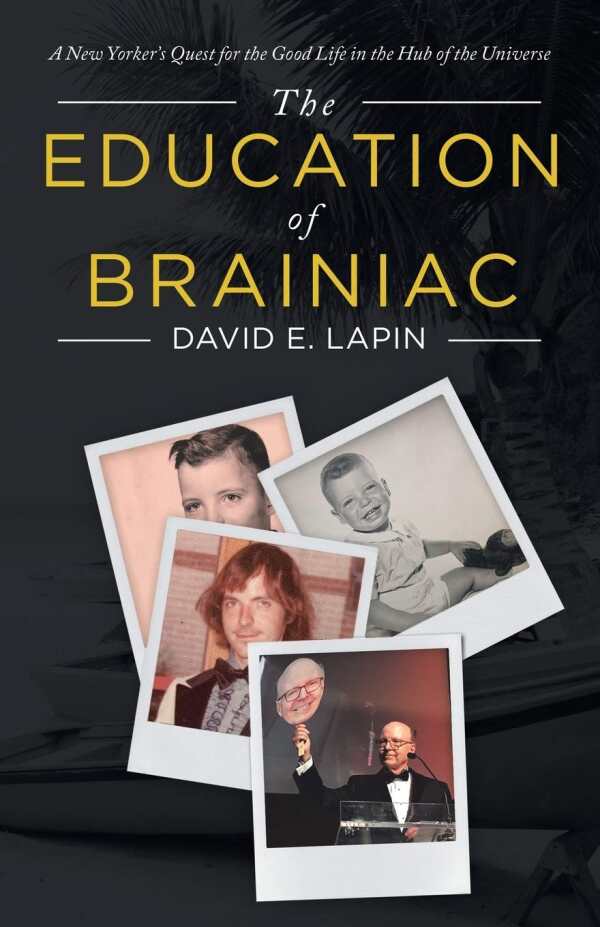The Education of Brainiac
A New Yorker’s Quest for the Good Life in the Hub of the Universe
The Education of Brainiac is an insightful memoir whose mix of humor and seriousness distinguish it.
David E. Lapin’s charming memoir The Education of Brainiac is centered in Boston’s music community.
Lapin was born in 1950s New York into an interfaith, Jewish-Christian family situated between multiple ethnic and religious communities. These beginnings ground his accounts in conflicting identities; themes of belonging, confusion, and acceptance are at the center of his intertwined stories.
Lapin faced challenges because of his poor health during middle school and high school, with hospitalizations, repeated transfers between schools and homes, and a lack of support from school administrators making his academic achievements more challenging. In spite of these setbacks, he was known as “Brainiac” by his fellow students—a nickname also reflected in his high achievements in political science at Yale University, where he earned a PhD.
Choosing not to pursue a career in academia, Lapin moved to Bay Village, a vibrant gay community in Boston, during the height of the HIV epidemic. Fears of exposure to the virus affected his views of intimacy and relationships, so love and passion were channeled into friendships and his career. He later became a director for Boston’s Community Music Center, helping the institution to survive in spite of relocations, renovations, and economic recessions. The Center, under Lapin’s leadership, expanded opportunities for Boston’s budding musicians.
In the background, Lapin remained caught between a loving relationship with his mother and an abusive one with his father; he expresses that it’s important to create one’s own family, a belief that led him to enduring friendships and enabled his self-discovery. Other people in his life are made vibrant through explorations of both their flaws and positive qualities.
Conversational and focused on the challenges of having a split identity, the book’s scenes move through the process of rejecting conventional mores and expectations and the importance of finding one’s own voice, separate from pressure and rejection. Expressing respect for his Lutheran and Jewish roots, Lapin later converted to Anglo-Catholicism. The memoir’s explorations of sexuality are also intricate: refusing to limit his identities with labels like gay or straight, Lapin made himself open to all kinds of encounters and relationships as they arose.
The book is arranged chronologically, but with some nonlinear asides. Its writing often has a stream-of-consciousness flavor, addressing work, relationships, travel, sex, faith, and community in turn. Criticisms of authority figures, colleagues, and friends are dovetailed with moving moments of appreciation for Lapin’s community and home.
The Education of Brainiac is an insightful memoir whose mix of humor and seriousness distinguish it.
Reviewed by
Holly Jordan
Disclosure: This article is not an endorsement, but a review. The publisher of this book provided free copies of the book and paid a small fee to have their book reviewed by a professional reviewer. Foreword Reviews and Clarion Reviews make no guarantee that the publisher will receive a positive review. Foreword Magazine, Inc. is disclosing this in accordance with the Federal Trade Commission’s 16 CFR, Part 255.

